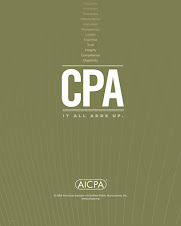I was wondering if you could get me some information. My son will be going to school this fall. Are here some credits that will give us a tax break for education?ReneRene, President Bush was not called the "Education President" for nothing. Under his watch there were several tax incentives put in the books the help defray the cost of education. Unfortunately everybody in Congress jumped on the bandwagon so we have several laws that we can select from. This makes it a little confusing. In addition the the credits below there may be some deductions.You are right in that education tax credits can help offset the costs of higher education for yourself or a dependent. The Hope Credit and the Lifetime Learning Credit are two education credits available which may benefit you. Because they are credits rather than deductions, you may be able to subtract them in full, dollar for dollar, from your federal income tax. The Hope CreditThe credit applies for the first two years of post-secondary education, such as college or vocational school. It does not apply to the third, fourth, or higher years of undergraduate programs, to graduate programs, or to professional-level programs.
It can be worth up to $1,800 ($3,600 if a student in a Midwestern disaster area) per eligible student, per year.
You're allowed a credit of 100% of the first $1,200 ($2,400 if a student in a Midwestern disaster area) of qualified tuition and related fees paid during the tax year, plus 50% of the next $1,200 ($2,400 if a student in a Midwestern disaster area).
Each student must be enrolled at least half-time for at least one academic period which began during the year.
The student must be free of any federal or state felony conviction for possessing or distributing a controlled substance as of the end of the tax year.
The Lifetime Learning CreditThe credit applies to undergraduate, graduate and professional degree courses, including instruction to acquire or improve job skills, regardless of the number of years in the program.
If you qualify, your credit equals 20% (40% if a student in a Midwestern disaster area) of the first $10,000 of post-secondary tuition and fees you pay during the year, for a maximum credit of $2,000 ($4,000 if a student in a Midwestern disaster area) per tax return.
You cannot claim both the Hope and Lifetime Learning Credits for the same student in the same year. You also cannot claim either credit if you claim a tuition and fees deduction for the same student in the same year. - To qualify for either credit, you must pay post-secondary tuition and certain related expenses for yourself, your spouse or your dependent.
- The credit may be claimed by the parent or the student, but not by both.
- Students who are claimed as a dependent cannot claim the credit.
These credits are phased out for Modified Adjusted Gross Income over $48,000 ($96,000 for married filing jointly) and eliminated completely for Modified Adjusted Gross Income of $58,000 or more ($116,000 for married filing jointly). If the taxpayer is married, the credit may be claimed only on a joint return.
For more information, see Publication 970, Tax Benefits for Education, which can be obtained online at IRS.gov



